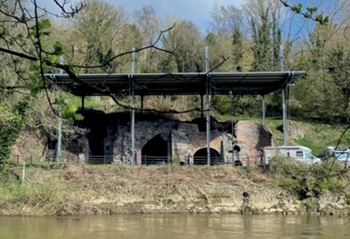Designing Buildings Wiki natural language programming
During 2018, the Knowledge Media Institute (KMi) at the Open University collaborated with Designing Buildings Wiki to develop software that helps identify subjects that practitioners are likely to want to know about.
The software uses natural language programming, artificial intelligence and machine learning to analyse large quantities of text and identify common concepts that have not been explained. This generates a prioritised list of articles that can be written which are likely to be popular with our users.
The first time the software was run it identified 250,000 unexplained concepts. Since then it has been taught to ignore certain words or phrases, so that it focusses only on industry-specific concepts. It has also been developed so that particular subject areas, or text from third parties can be analysed. This is particularly useful for helping our partners target new content creation.
The software can also analyse lists of keywords and identify phrases that are commonly associated with those keywords. This can help broaden out subjects and find connections with other areas of construction knowledge.
In testing, subjects identified by the software were more popular than subjects Designing Buildings Wiki editors came up with themselves. In a four month period between October 2018 and February 2019, 73 articles were written based on the reccommendations of the software and 164 based on ideas the editors came up with. The articles written based on the software reccommendations recieved 35% more views.
Designing Buildings Wiki Director, Dr Gregor Harvie said:
“The use of artificial intelligence is allowing us to streamline our activities, focussing resources on the subjects our users most want to know about. It has also revealed some gaping holes in our knowledge base. The first time we ran the software we discovered we had not explained what a building is, or what designing is – both of these words appear in our own name.”
“It is particularly useful in helping specialists explain complex areas of the industry to non-specialists. It can be difficult to put yourself into the mind of someone that does not know what you know. This software allows you to see subjects with a fresh mind, identifying things that have not been explained. Sometimes these are technical terms, but more often they are concepts that are so obvious they have been overlooked.”
Featured articles and news
The act of preservation may sometimes be futile.
Twas the site before Christmas...
A rhyme for the industry and a thankyou to our supporters.
Plumbing and heating systems in schools
New apprentice pay rates coming into effect in the new year
Addressing the impact of recent national minimum wage changes.
EBSSA support for the new industry competence structure
The Engineering and Building Services Skills Authority, in working group 2.
Notes from BSRIA Sustainable Futures briefing
From carbon down to the all important customer: Redefining Retrofit for Net Zero Living.
Principal Designer: A New Opportunity for Architects
ACA launches a Principal Designer Register for architects.
A new government plan for housing and nature recovery
Exploring a new housing and infrastructure nature recovery framework.
Leveraging technology to enhance prospects for students
A case study on the significance of the Autodesk Revit certification.
Fundamental Review of Building Regulations Guidance
Announced during commons debate on the Grenfell Inquiry Phase 2 report.
CIAT responds to the updated National Planning Policy Framework
With key changes in the revised NPPF outlined.
Councils and communities highlighted for delivery of common-sense housing in planning overhaul
As government follows up with mandatory housing targets.



















